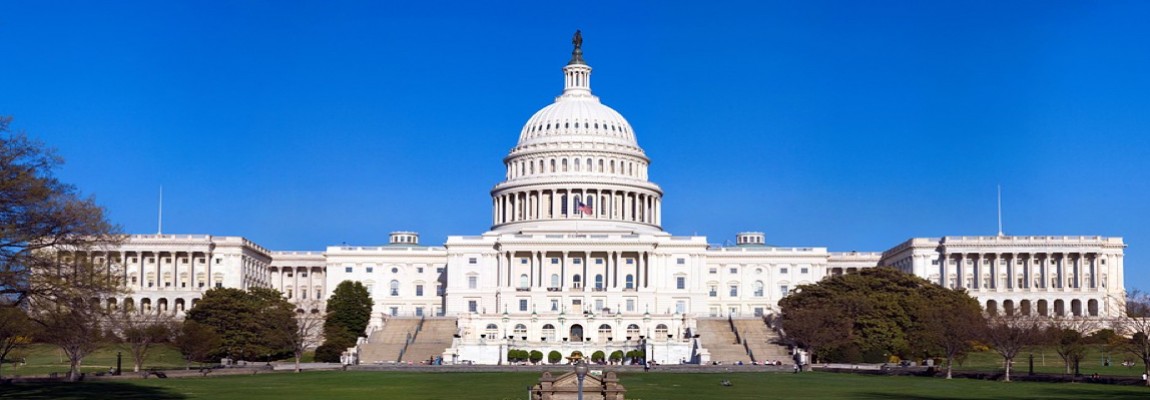We invite workshop and challenge proposals for the 2017 IEEE Conference on Automatic Face and Gesture Recognition (FG 2017: http://www.fg2017.org/) in Washington, DC. Accepted workshops and challenges will be held on either May 30 or June 3, 2017, in the same venue as the FG 2017 main conference.
We solicit workshops and/or challenge proposals on any topic of interests to the FG community. Complementary to the main venue, we especially encourage workshop and/or challenge proposals that are stemmed from emerging new fields or new application domains related to face and gesture analysis and synthesis. Interdisciplinary topics that could attract a significant cross-section of the community are highly valued. Workshop and challenge organizers who have a strong track record in the field are strongly encouraged to submit a proposal.
The workshop and challenge paper submission, review, acceptance notification, and final manuscript due must all be handled between February 1st, 2017 (deadline for workshop/challenge papers) and March 8th, 2017 (camera-ready workshop/challenge paper due date). Financial support from the main conference is not guaranteed and is depending on budget. The deadline for all workshop and challenge proposals is September 23rd, 2016. Decisions will be made by October 10th, 2016.
The main conference will provide rooms, equipment, and coffee breaks for the workshops. If necessary, poster facilities will be offered. For each workshop one complimentary registration for a keynote speaker is available. For any additional questions please contact the workshop and challenge organizers.
WORKSHOP PROPOSAL SUBMISSION
Workshop proposals must be sent to the workshops and tutorials chairs, Carlos Busso (busso@utd.edu) and Shangfei Wang (sfwang@ustc.edu.cn), with email subject “FG 2017 Workshop Proposal: [title of your workshop]”. A proposal should include the following information to facilitate the decision process:
– Workshop title;
– Workshop motivation, expected outcomes and impact;
– List of organizers including affiliation, email address, and short bio;
– Tentative length of the workshop (half day or full day);
– Tentative paper submission and review schedule;
– Planned advertisement means, website hosting;
– Paper submission procedure (submission via web site, via email, etc.) if applicable;
– Paper review procedure (single/double-blind, internal/external, solicited/invited-only, pool of reviewers, etc.) ;
– Specify the relationship, if any, to previous workshops; Describe difference with most relevant previous workshops;
– Tentative program committee, and invited speakers, if any;
– Estimated number of submissions and acceptance rate;
– Special space or equipment requests, if any;
– Specify if there will be non-peer reviewed invited paper, if so, how many?
For your reference, below is a list of workshops held in conjunction with the previous FG conference:
• Context Based Affect Recognition (CBAR 2015)
• Biometrics in the wild (B-Wild 2015)
• De-identification for privacy protection in multimedia (DEID 2015)
• Emotion Representation, Analysis and Synthesis in Continuous time and Space (EMOSPACE 2015)
• Understanding human activities through 3D sensors (UHA3DS 2015)
CHALLENGE PROPOSAL SUBMISSION
Challenge proposals must be sent to the challenge chair Dr. Sergio Escalera (sergio.escalera.guerrero@gmail.com), with email subject “FG 2017 Challenge Proposal: [title of your workshop]”. A proposal should include the following information to facilitate the decision process:
– Challenge title;
– Challenge motivation, expected outcomes and impact;
– Data: A detailed information about the available data and their annotations. If data will be generated anew, details of what the data generation procedure will be (the document should clarify how and when the data will be ready prior to the official launch of the challenge) ;
– Platform: Description of how you will manage data sharing, submissions, and verification of the final results;
– Baseline and code availability: Specification of what the evaluation criteria and the baselines for the challenge will be, and details of the available code (e.g., a starting kit) ;
– Challenge protocol: Detailed explanation of the challenge procedure, i.e., what the participants will be expected to do, what will be submitted (results or code), what the evaluation procedure will be, and how misconduct will be prevented;
– Challenge rules: A list of specific rules, if any;
– Challenge promotion: A plan of how the organizers will promote participation in the challenge (e.g., mailing lists in which the call will be distributed, invited talks, website hosting, etc.);
– Plan for disseminating the results;
– Schedule: A detailed timeline for challenge preparation, running the challenge itself, revision process, paper submission and review schedule of the challenge workshop. The challenge workshop may receive submissions from the challenge participants or from non-participants that contribute with novel research related to the topic of the challenge;
– List of organizers including affiliation, email address, and short bio;
– Tentative challenge workshop program and duration;
– Paper submission procedure (submission via web site, via email, etc.) if applicable;
– Paper review procedure (single/double-blind, internal/external, solicited/invited-only, pool of reviewers, etc.);
– Specify the relationship, if any, to previous challenges and workshops describing the differences with most relevant previous challenges and workshops;
– Tentative program committee, and invited speakers, if any;
– Estimated number of submissions and acceptance rate;
– Special space or equipment requests, if any.
For your reference, below is a list of challenges held in conjunction with previous FG conferences:
• Facial Expression Recognition and Analysis Challenge (FERA 2015)
• Facial Expression Recognition and Analysis Challenge (FERA 2011)
